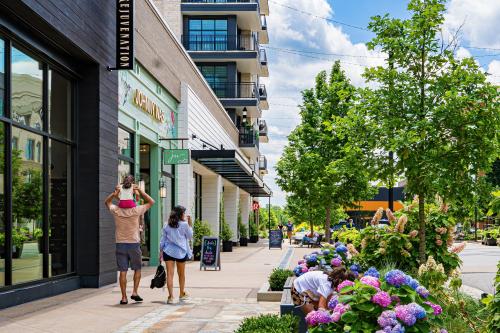A great tragedy of American political etymology is the fate of the word “liberal.” Although the liberal philosopher John Locke can be seen, intellectually, as a founding grandfather of the United States, the word liberal mutated to mean “left.” American liberalism jumped from John Locke to Dewey and then to Rawls.
The result is that “liberals” and “libertarians” are seen as being on the opposite sides of the spectrum, when in terms of social issues they are often in agreement. Brink Lindsey, Director of the Open Society Project at the Niskanen Center, has valiantly attempted to rally some supporters to what he calls the “Liberaltarian” banner.
Meanwhile, some center-left politicians, seeking to lose the left-ish connotations of the liberal label opt instead for the vague identification of “progressive”. In short, it is all a bit of a mess.
But the loss is not just of terminological clarity.
The lack of a clear liberal territory in U.S. politics leaves many Americans politically homeless, and makes for a less fruitful debate on many of the issues of the day, including free speech, feminism, education reform and racism.
For a true articulation of liberalism, look to the 19th century British thinker, politician and activist John Stuart Mill, described by David Brooks in the New York Times as a “True Hero of Democracy.” I may be a little biased here: I am, after all Mill’s biographer. For those who want to know more about Mill, I have just contributed the opening chapter, titled “Mill’s Mind,” to the new Blackwell Companion to Mill, which is reproduced on the Brookings website here.
Liberalism properly defined is distinct from both social democratic and libertarian thinking. The core components of liberal political philosophy as:
- A focus on individuality, as opposed to individualism. Liberalism is sometimes tarred with the brush of utilitarianism. But a liberal life is not one lived in the pursuit of maximizing individual utility. It is about living our own life to the full. Mill urged in On Liberty that “instead of any diminution there is need of a great increase of disinterested exertion to promote the good of others.”
- The importance of living our lives under our own propulsion. The great enemy of a liberal way of life is passivity, whether caused by religion or paternalism or addiction or dependency. A liberal life, according to Mill, is an active, purposeful one. Liberalism is “progressive” in the sense that the point of life is to do something with it, to get somewhere. Welfare is necessary, but should be spur to self-improvement rather than to dependency: “It is even more fatal to exertion to have no hope of succeeding by it, than to be assured of succeeding without it. When the condition of any one is so disastrous that his energies are paralyzed by discouragement, assistance is a tonic, not a sedative: it braces instead of deadening the active faculties.”
- The importance of living our lives according to our own values. As Mill wrote in On Liberty: “One whose desires and impulses are not his own, has no character, no more than a steam-engine has a character.”
- The intrinsic value of diversity in society. Since every individual will have different values and desires, a society which pluralistic and diverse, offering many ways of life, will give us more opportunity to have a life which is “lived from the inside,” in philosopher Will Kymlicka’s phrase.
- The vital importance of free speech. Mill gave one of the finest and most famous defenses of free speech in Chapter 2 of On Liberty. (Look out for a forthcoming new edition of this chapter from Heterodox Academy, edited by Jonathan Haidt and myself). Free speech is necessary for us to improve our own ideas, to test theories, to learn from one another. It is as much about listening as it is about speaking. As he wrote: “It is not on the impassioned partisan, it is on the calmer and more disinterested bystander, that the collision of opinions works its salutary effect.”
- A moral imperative towards self-betterment. The point of diversity, education and freedom is to ensure that we each have the resources and opportunities to make something of ourselves. Liberalism is not a philosophy for the faint of heart. Mill insists that all of us “are under a moral obligation to seek the improvement of our moral character.”
- A principled agnosticism on the role of the state. Liberalism is neither anti-state nor pro-state. To a liberal, it depends critically not how much the state is doing, but what it is doing. More spending on education, in manner consistent with choice and diversity, for example, is good for liberty. As he wrote in 1859 (but in words that remain relevant today): “The interference of government is with about equal frequency, improperly invoked and improperly condemned.”
So, how about it, my fellow Americans? Can we have liberalism – the proper kind, that is – here too?
The Brookings Institution is committed to quality, independence, and impact.
We are supported by a diverse array of funders. In line with our values and policies, each Brookings publication represents the sole views of its author(s).




Commentary
What real liberalism looks like
January 16, 2018